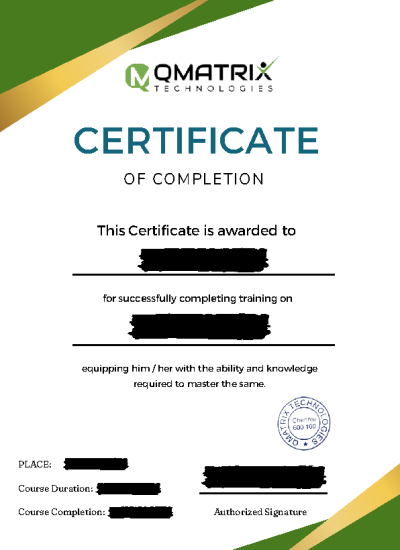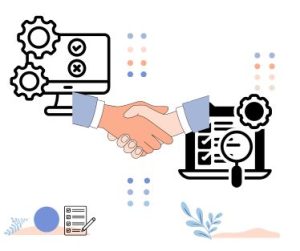Enrol in Qmatrix Technologies’ DevOps Training in Chennai, which is regarded as the best Training Institute in Chennai, to learn from professionals in the field.
Everything you need to know about DevOps will be covered in the curriculum, starting with the concepts and ecosystems of the field and moving on to Linux, its commands and versions, etc. Additionally, Git, Jenkins, Ansible, Docker, Puppet, Nagios, and Kubernetes will be covered. Prior to working on real-world Capstone projects, you will learn how to leverage DevOps in the Amazon Cloud. Practical activities are also included in the curriculum to give students the practical skills needed in today’s business. Thus, enroling in Qmatrix Technologies’ DevOps Course in Chennai is the best option if you want to work in the field of DevOps.














Through continuous evaluation and comprehensive analysis throughout the software development lifecycle, DevOps offers a rare chance to significantly improve the software’s efficiency, speed, and security. In the corporate world, DevOps is a highly sought-after coding technique since it allows organizations to innovate and improve their operational models.
To succeed in the very competitive field of coding, one must become proficient in DevOps. At Qmatrix Technologies in Chennai, we offer top-notch DevOps and coding instruction intended to create dependable, scalable software.
Our complete DevOps program provides invaluable networking opportunities, professional mentoring, and critical skills. After finishing, you’ll be equipped with all you need to start a lucrative DevOps career. Come join us at Qmatrix Technologies, where we assist you in bridging the gap between your objectives and your successes.
To meet a range of schedules and learning choices, we provide both instructor-led and online courses.
Practical training to hone your theoretical and practical abilities while learning a wide range of DevOps tools and technologies.
An updated, complete curriculum that includes the most recent updates and covers all essential DevOps subjects.
Take advantage of flexible scheduling for an easy and stress-free learning experience that is customized for every student.
Obtain a prestigious DevOps certification that will attest to your accomplishments in research and hands-on training.
Get complete assistance and a 100% placement guarantee for getting the best jobs in the DevOps industry.

Want to become more proficient in DevOps? Get expert DevOps training in Chennai from professionals in the field on the most advanced and in-demand DevOps Cloud!

They provide you with the most recent information, procedures, and services so you can stay up to date on all the goings-on.
Learning plans are designed to be convenient for working professionals, ensuring flexibility without compromising on quality.
Gain practical DevOps expertise through exposure to real projects, enhancing your hands-on understanding effectively.
For complete training, we offer a well-rounded program that includes both academic and practical workshops.
Our experts help with improving resumes, conducting simulated interviews, and boosting self-assurance for actual interviews.
Our training program increases earning potential in high-paying IT roles through specialized certificates, career advancement.
The DevOps environment is changing quickly, opening up new career prospects. This technology essentially serves as a link between IT operations and software development. As a result, it gives priority to cooperation, integration, and communication.
As a result, both professionals and students can devote their time and effort to studying DevOps and get well-paying positions.
Your responsibilities as a certified DevOps Solutions Architect will include:
Our DevOps Certification Course materials are incredibly effective and have been prepared by industry experts and professionals to ensure that you fully understand the topic. The learning resources provide an ideal balance of theoretical knowledge and practical insights to prepare you for the role of a DevOps specialist. We offer live sessions, training videos, hands-on project experiences, assignments, and simulation assessments to ensure the best DevOps training.
Yes, we certainly do. Qmatrix Technologies offers 100% placement help to its students. We train students through mock interviews and group discussions, as well as offering soft skill training to enhance their confidence, to fully prepare them for job placement.
You will receive a Qmatrix Technologies-validated certificate after finishing our DevOps training program, which includes all projects, tests, and assignments, and earning at least 60% of the qualifying exam scores. Our course certificate is valid for life, and you may use it to demonstrate to hiring managers or prospective employers that you are skilled in DevOps.




